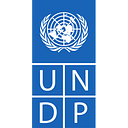Supporting #Skills4Life: VET schools benefit from #EU4Schools Programme
‘A profession makes your life worthy — get a specialization!’ This is the slogan of the ‘Hysen Çela’ High School in Durrës. Vocational Education and Training (VET) provides students with skills which are vital for both personal development and employment, while responding to the needs of the economy by bridging the gap between education and job market needs. It contributes to higher youth employability, thus supporting students reach their full potential in the labor market.
The morning of the 26th November 2019 found the ancient town of Durrës devastated by a 6.4 magnitude earthquake. Not only were the walls of the city’s century-old castle damaged, but also houses and public buildings, including schools and kindergartens.
The #EU4Schools Programme is funding the reconstruction and repair of 58 education facilities in 11 Albanian municipalities, as part of the European Union’s assistance to the country for the relief of the earthquake’s consequences. The ‘Hysen Cela’ VET School is one of the Programme’s beneficiary institutions.
The reconstruction, based on the #BuildBackTogether and #BuildForwardBetter principles, does not aim the mere infrastructural rehabilitation of the educational objects, but also at building modern education facilities according to the highest EU standards, and in line with Eurocode 8, for earthquake resistance. The targeted objects, including VET schools, will have central heating, be fully accessible for students and teachers with special needs and they will be equipped with laboratories, which are crucial for students to build life-skills and facilitate the transfer of know-how through practical work.
This is expected to have a great impact in the teaching and learning process, especially from the VET aspect and for the long-term ability to master new skills.
“Well-equipped laboratories, especially in VET schools, which greatly assist students’ capacities to acquire a profession, are vital for an efficient learning process. Our students get a diploma in both Albanian and English languages, which allows them to be competitive with their European fellows in the labor market,” says Valbona Çela, teacher at the ‘Hysen Çela’ VET School in Durrës.
Teuta Deti, a fourth-year student who would like to study global economics in the future, says that adequate teaching tools and well-equipped laboratories make the difference for an attractive and efficient learning process, as regards the students. She is one of the school’s 1,370 students being taught practical skills, highly needed in the market. She strongly believes the VET system is uniquely positioned to deliver real skills for real careers. Book-keeping and accounting, hotel-restaurant services, culinary and fishing specialties are among the professions that they are learning. In a tourist-driven city like Durrës, students have greater employment opportunities if they are equipped with professional skills.
Out of the 58 education facilities to be reconstructed or repaired through the #EU4Schools Programme, four are VET schools located in Durrës, Kavaja and Tirana municipalities. These schools host a total of 2,670 students and 175 teachers, all of whom will benefit professionally and personally both in the long and short-term.
The VET system can boost enterprise performance, competitiveness, research and innovation and is a central aspect of successful employment and effective social policy. In Albania, it occupies 17% of the overall high school education, according to the Ministry of Education, Sports and Youth, where 46 facilities provide vocational education and training for approximately 18,000 students.
The #EU4Schools Programme, funded by the EU and implemented by UNDP Albania, is a strong testimony of the EU investment to develop life-skills for the Albanian youth, as well as enable them to acquire the right professions responding to the labour market needs. This process also promotes work-based learning in all its forms, enhanced access to VET, and provides more effective opportunities to acquire or develop those skills through offering European standards of education.
